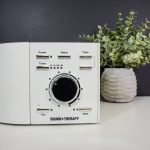Summary: A new patient-centric data platform has been launched to enhance research on central disorders of hypersomnolence. This platform, designed to improve understanding of these conditions, uses artificial intelligence and machine learning. The platform allows patients to manage and share their data, aiming to hasten research and the development of new treatments. Expert-curated surveys and IRB-approved questionnaires are designed to help identify new patients and lead to faster diagnoses.
Key Takeaways:
- The platform leverages AI and machine learning technologies, provided by the RARE-X program, to analyze patient data and enhance research on central disorders of hypersomnolence, linking to data on other rare and non-rare diseases.
- By allowing patients to manage and share their own data, the platform fosters greater autonomy and accelerates the path to new discoveries and therapies in sleep medicine.
- Expert-curated surveys, questionnaires, and scales, approved by the Institutional Review Board, will be used to collect detailed patient information. This data collection aims to identify new patients across various disease areas, leading to faster and more accurate diagnoses.
Sleep Consortium, in collaboration with sleep-related patient advocacy groups, the patient community, and industry stakeholders, has launched the Sleep Data Collection Platform to enhance research on central disorders of hypersomnolence.
Designed for individuals and families affected by central disorders of hypersomnolence, the Sleep Data Collection Platform aims to improve the understanding of these conditions by leveraging artificial intelligence and machine learning already enabled by RARE-X, a research program of Global Genes.
Launch Event and Platform Capabilities
On April 29, the consortium launched the platform with a multi-media announcement and a webinar. This event showcased the platform’s capabilities and discussed how patient-owned and controlled data could hasten research and the development of new treatments. Experts from RARE-X and opinion leaders in the sleep community provided a virtual tour of the platform and highlighted its potential to transcend traditional research registries by linking to data on other rare and non-rare diseases, thus broadening the scope of its impact.
Lindsay Jesteadt, co-founder and CEO of Sleep Consortium, says in a release, “This platform embodies our commitment to placing the control of data back into the hands of those most affected. By empowering patients to manage and share their own data, we not only foster greater autonomy but also accelerate the path to new discoveries and therapies in sleep medicine.”
Mission and Collaboration
Founded in 2021, Sleep Consortium was established with the mission to reduce diagnostic delays and identify undiagnosed individuals across multiple disease areas, globally. The consortium’s founding partners, including patient advocacy organizations and industry stakeholders, have formed a network dedicated to dismantling research barriers, breaking down data silos, and empowering patients.
Claire Wylds-Wright, co-founder and chief experience officer of Sleep Consortium, says in a release, “As a parent and caregiver of a young person with narcolepsy I have been aware for over a decade of the acute need for research in sleep medicine to bridge the gap between the academic journals and the patient journey. What is particularly exciting with the platform is how it empowers patients to engage with the latest technology, backed by an old-fashioned desire for teamwork to advance the research agenda.”
Expert-Curated Data Collection
The platform’s surveys, questionnaires, and scales have been curated by expert sleep researchers and have been Institutional Review Board-approved. New patients from different rare and non-rare disease areas will be identified, leading to faster diagnosis.
“Sleep’s critical role in health, wellness, performance, mood, and quality of life is now more than ever being appreciated, resulting in further scientific evaluation to be used as a tool for better individual outcomes. Sleep Consortium is taking the lead by transforming the clinical and research landscape, with patient-owned data, to increase disease understanding, and move towards a future with more treatment options, thereby advancing our field,” says Anne Marie Morse, DO, director of child neurology and pediatric sleep medicine, Geisinger, Janet Weis Children’s Hospital, and Sleep Consortium scientific advisor, in a release.
Support for the Sleep Data Collection Platform also includes contributions from Alkermes, Avadel Pharmaceuticals, Jazz Pharmaceuticals, Takeda Pharmaceuticals, Centessa Pharmaceuticals, and Zevra Therapeutics.
Photo 106117755 © Jakub Jirsak | Dreamstime.com




Leave a Reply